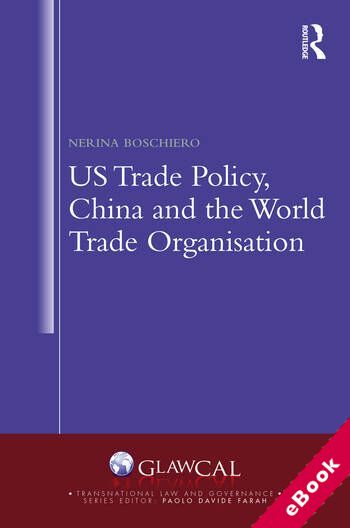
The device(s) you use to access the eBook content must be authorized with an Adobe ID before you download the product otherwise it will fail to register correctly.
For further information see https://www.wildy.com/ebook-formats
Once the order is confirmed an automated e-mail will be sent to you to allow you to download the eBook.
All eBooks are supplied firm sale and cannot be returned. If you believe there is a fault with your eBook then contact us on ebooks@wildy.com and we will help in resolving the issue. This does not affect your statutory rights.
The past decade have been anni horribiles for in International Economic Law in general and in particular for the World Trade Organization, since its inception in 1995 the guarantor of the world multilateral trade system. The increasing trade tensions, a high level of US security tariffs on steel and aluminium, the US boycott of the WTO Appellate Body, the US-China "trade war" and the reasons underlining it, only aggravated a disastrous world-wide economic situation at a time of tremendous global health and societal emergency, due to the persistent devastating spread of the COVID-19 pandemic. The book critically discusses the most salient past US Administration’s unilateralist and protectionist practices. At the same time investigating the new Biden Administration’s trade approaches in order to assess whether the precedent trade trajectory is likely to continue, or there is hope of reviving the US commitment to the rule-based multilateral trading system. The book’s goal consists in distilling from the current legal events the reasoning that might help the next generations in obtaining what the world needs most. These are a conscious and voluntary return to multilateralism, the search of new forms of effective global cooperation, better trade policies, a more equitable globalization, sound legal arguments and solid economic reasons to combat the raising nationalisms. If enacted, these elements hopefully would contribute to defeat new risks of political conflicts and long-lasting "trade wars".
The book will be helpful to students and scholars in international and trade law, political science, and also professionals working in international and EU institutions.